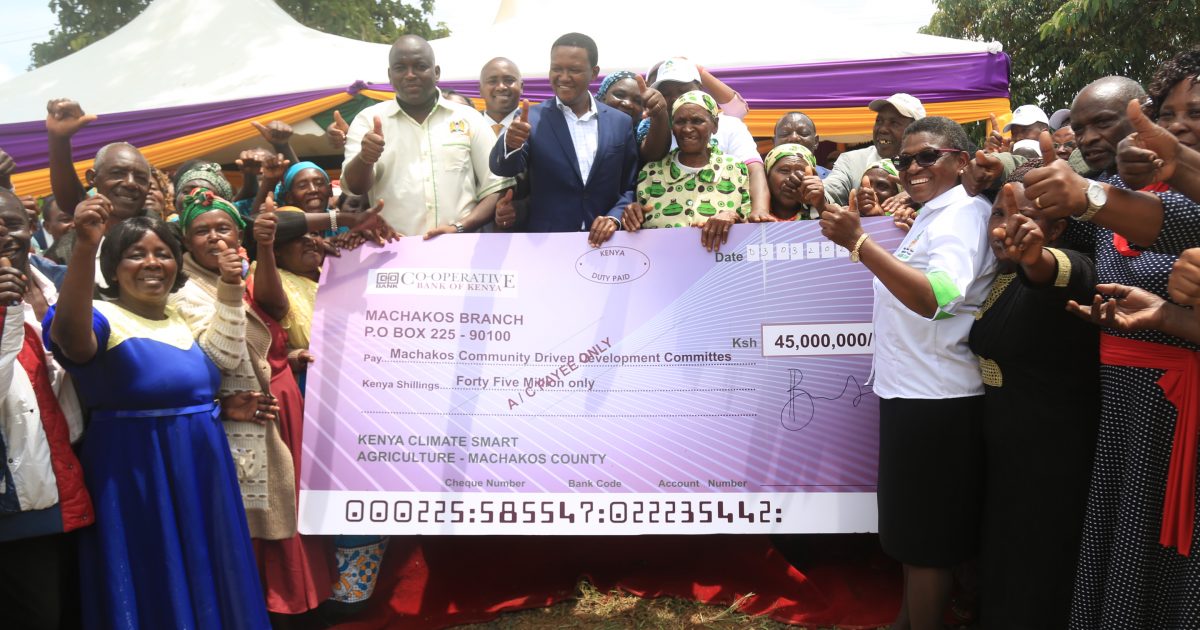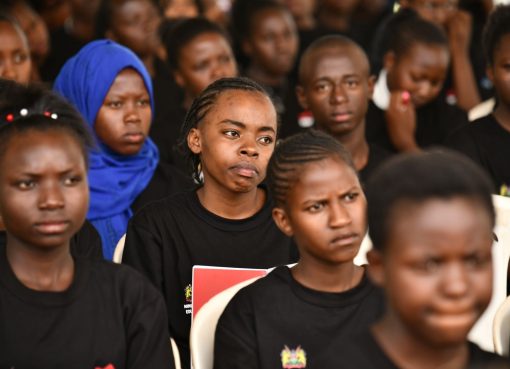Machakos County government is pushing for uptake of modern farming techniques, as one way of improving food production and addressing the effects of climate change.
Speaking in Muthetheni trading centre, Mwala sub county during the launch of the Climate Smart Agriculture Project on Tuesday, the Machakos Governor, Dr. Alfred Mutua said the only way of creating wealth among the rural residents is by coming up with mechanisms that can boost farming activities by investing in modern technology.
He said the objective of launching the project was to empower farmers through self-help groups and pushing for innovation, technology as well as an improvement in management practices for better agricultural output.
Dr. Mutua said the county government has so far spent a total of Sh.45 million in the first phase of the program to assist self-help groups involved in agriculture activities start-up agricultural enterprises.
“We have so far invested Sh.5 million in this inaugural phase of the program that will see self-help groups from Muthetheni, Katangi, Mwala, Kola, Masii and Ikombe receive grants for their start-up agricultural enterprises. The success of this phase will determine its implementation across the other wards in the County,” he said.
The County government has so far managed to supply 680 tonnes of free seeds to at least 640,000 farmers.
The government has also given out 15,000 free indigenous chicks, subsidized fertilizers and helped in the cultivation of 53,000 hectares of farmers land across the eight sub counties.
The governor lauded members of the county assembly and donors for being at the forefront in supporting the projects, adding that he was confident that the initiative will ultimately help in uplifting lives of the people.
“I am glad that the County Assembly of Machakos remains supportive of our projects. I am also happy that donors continue to support our programs as a vote of confidence in our accountability and commitment to the people. I am sure that with our combined efforts, the quality of life of our farmers will continue to be uplifted,” he added.
Meanwhile, Kenya is very vulnerable to climate change with current projections suggesting that its temperature will rise up to 2.5ºC between the years 2000 and 2050, while rainfall will become more intense and less predictable.
In April last year, the Food and Agricultural Organization (FAO) Country leader in charge of Inclusive Value Chains, Tito Arunga, while attending a trade fair in Machakos town called upon both the national and county governments to encourage farmers to embrace smart farming to cushion the country from the ravages of climate change.
He said Kenya still remains a food insecure county and as such every effort should be put in place to mitigate against undesirable effects emanating from climate change.
At the same time, scientists have cautioned that global temperatures will continue to rise for decades to come, largely due to greenhouse gases thanks to accelerated human activities.
The Inter-governmental Panel on Climate Change (IPCC), which includes more than 1,300 scientists from the United States and other countries, forecasts a temperature rise of 2.5 to 10 degrees Fahrenheit over the next century, according to the National Aeronautics and Space Administration (NASA) lab website produced by the Earth Science Communication team.
These horrifying realities to say the least, drastically affect rain patterns, disrupt weather patterns and lead to dwindling yields as more and more regions that were erstwhile bread baskets slowly turn to baking ovens.
By Samuel Maina




